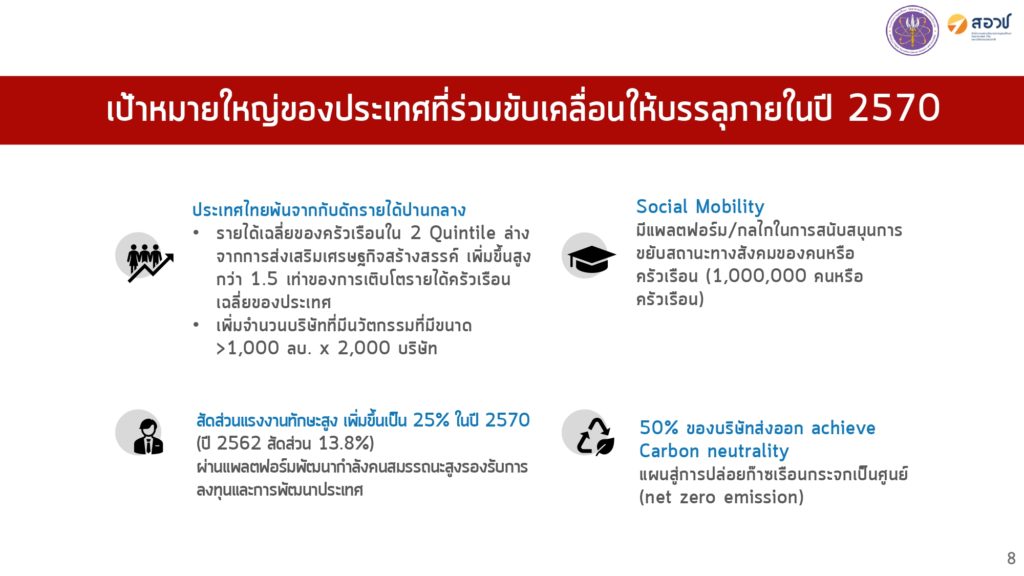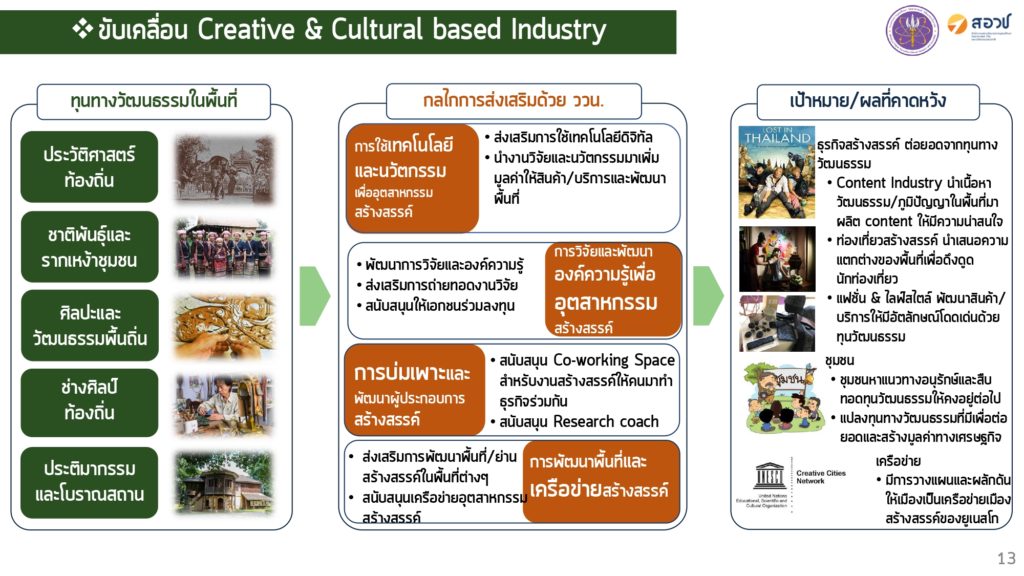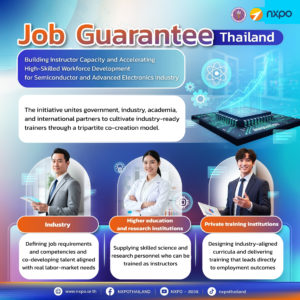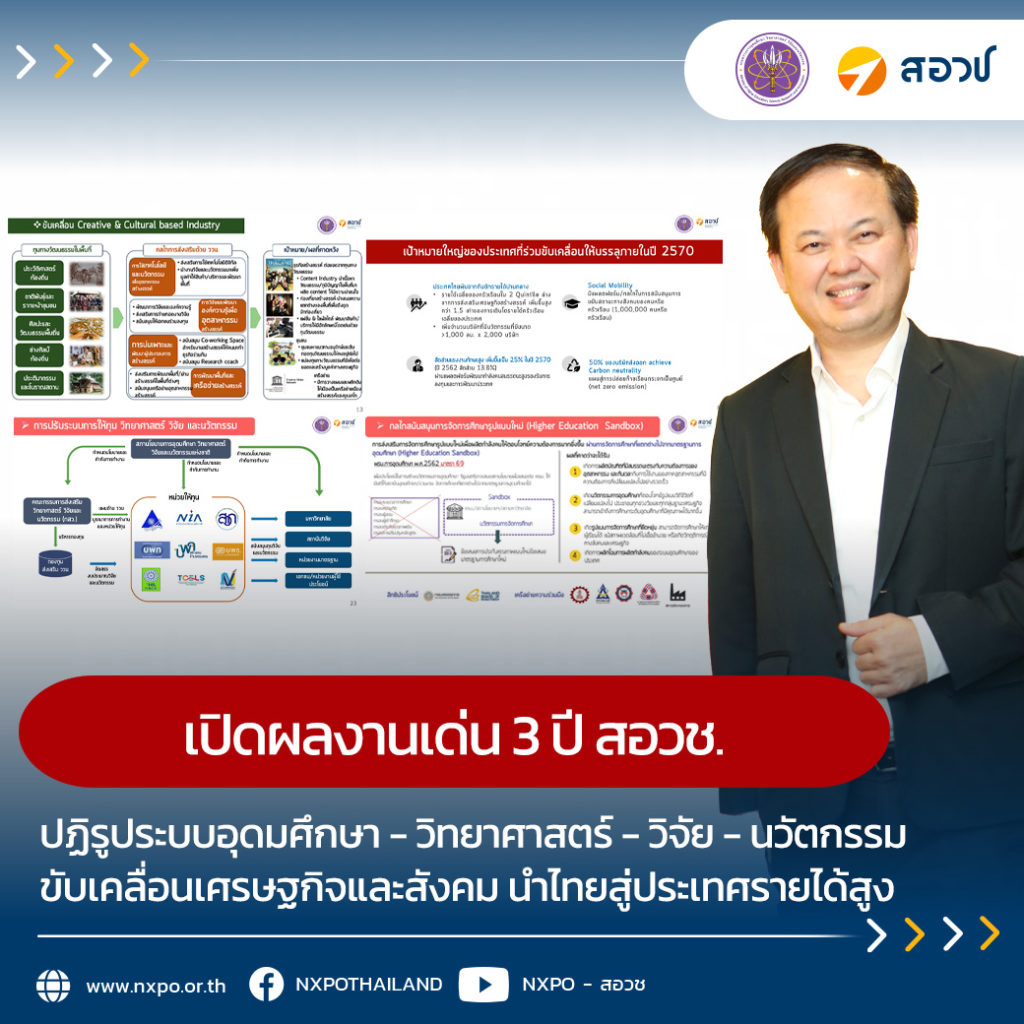
Since its establishment in 2019 along with the Ministry of Higher Education, Science, Research and Innovation (MHESI), NXPO has been making steady progress on a number of key issues, such as the higher education, science, research and innovation system reform to drive the social and economic development, higher education reinvention and circular economy. Key achievements include the establishments of Higher Education Fund to promote high-skilled manpower development to meet the country’s demand, and three program management units (PMUs) as research-granting bodies, each with distinct missions: manpower development, competitiveness improvement, and area-based development and grassroots economy. The three PMUs are (1) Program Management Unit for Area-based Development (PMU-A); (2) Program Management Unit for Human Resources & Institutional Development, Research and Innovation (PMU-B); and (3) Program Management Unit for National Competitiveness Enhancement (PMU-C).

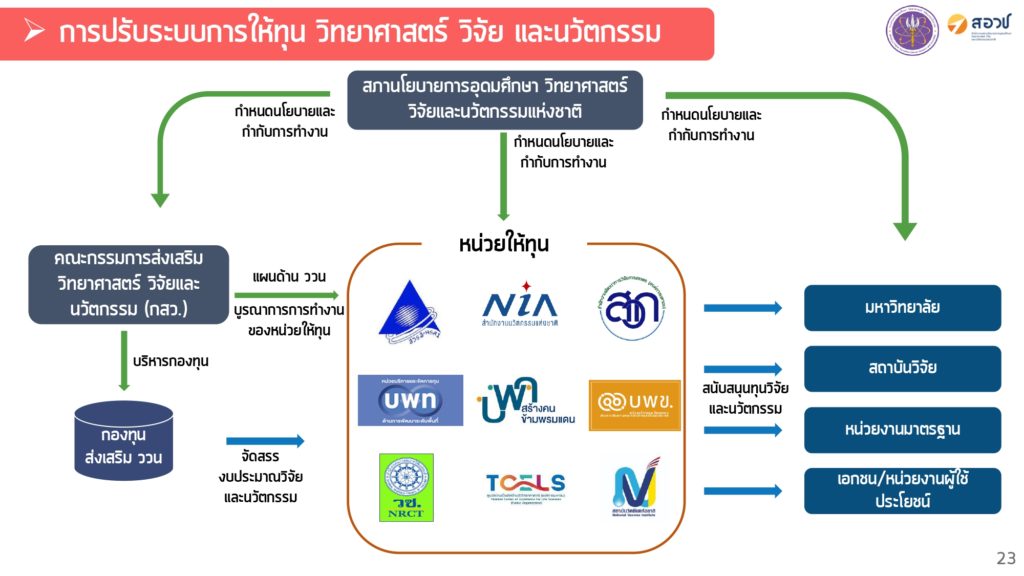
The creation of PMUs has significantly accelerated innovation development in Thailand. Multiple innovations have been delivered to strengthen the competitiveness of various industries. The developments of biopharmaceuticals and diagnostic tests have brought enormous benefit to the health industry. A study on xanthone extracts from mangosteen pericarp has created substantial value to agricultural by-products, and the investigation is now advancing from herbal to medical-grade extract. Prototypes of electric vehicles – electric cars and electric trucks – have already been rolled out. The prototype of light rail transit system is being developed to support the urban development of major cities. The AI for ALL project has developed human capital and awareness in artificial intelligence (AI) which will result in a workforce with AI and machine learning skills to enhance the competitiveness of Thai industries. The area-based development has been implemented in all provinces to facilitate social mobility and to develop culture-based and creative industry to boost the local economy. The weekly cultural market in Thung Song district, for example, generates THB 1 million in sales/week.


Initiatives underpinning the higher education reinvention and high-skilled manpower development include the new higher education sandbox measure that allows higher education institutes to engage industry in the curriculum design and delivery, or to offer education programs that full-time workers can enroll. The academic promotion system has been introduced for university faculty members and researchers in the following fields: 1) social service, 2) aesthetics, 3) education, 4) innovation and 5) religion and philosophy.
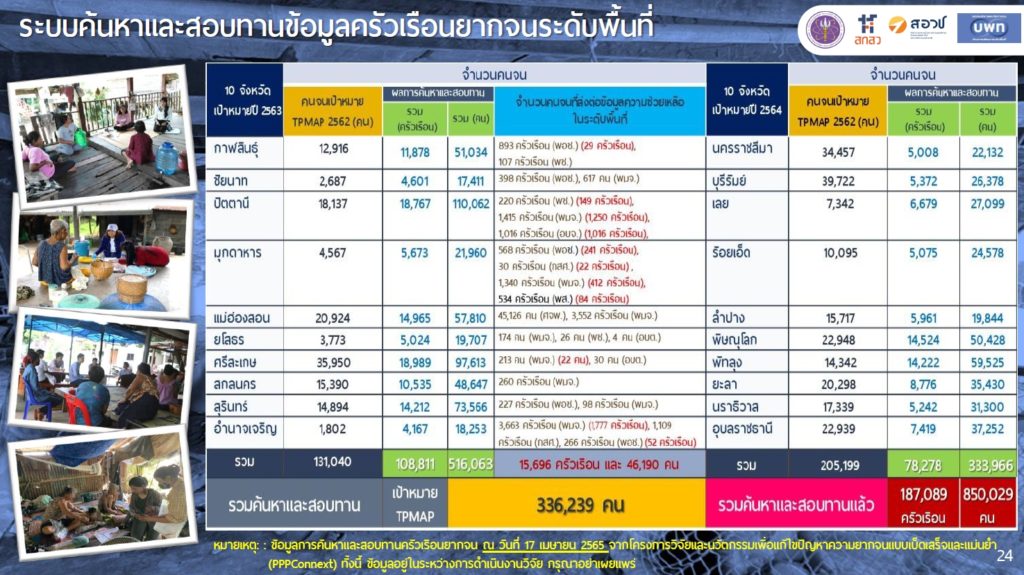
A new budget system has been introduced via the establishment of Funds and a database system. Funds are allocated to PMUs to administer research grants and manage research programs.
To build a strong foundation for technological development, NXPO launched a frontier research initiative. A white paper has been released outlining recommendations on the direction and investment in areas such as genomics, quantum technology, space technology and high energy physics. A platform has been set up to facilitate the matching of workforce demanded by industry and graduates supplied by universities. The platform is a collaborative effort of NXPO, Thailand Board of Investment (BOI), MHESI Permanent Secretary Office, the Council of Science Dean of Thailand, the Council of Engineering Deans of Thailand and industry. The program expects to produce 20,000 science and engineering graduates annually to supply to the industry.
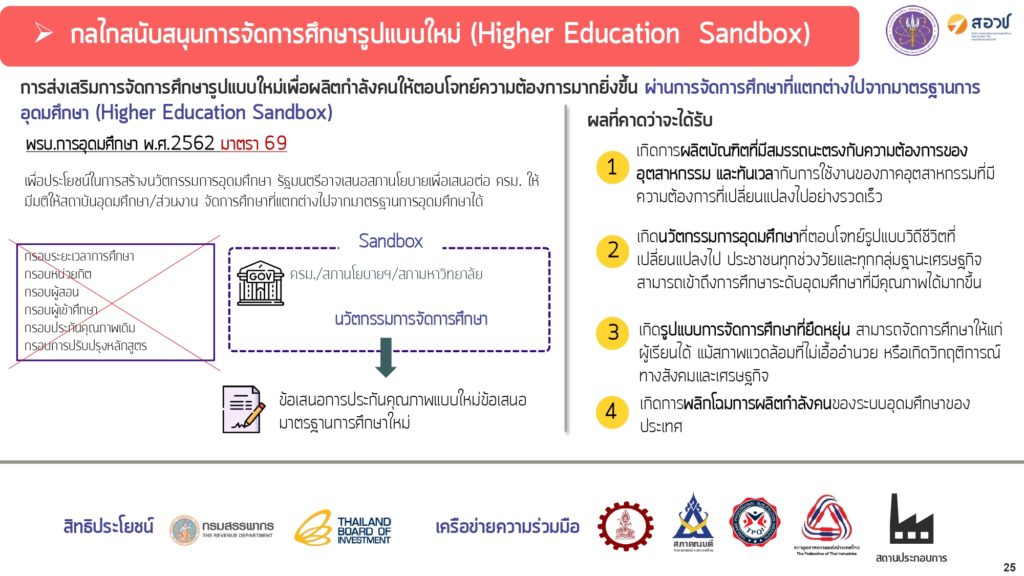
For the future outlook, NXPO is planning to support the government’s goal to elevate Thailand to a developed country with USD 12,500 per capita income, via programs such as innovation-driven enterprises (IDEs), social mobility, and competitiveness enhancement of industrial sector. Transformation need to be made in the industrial sector. For instance, the automotive industry will be transitioned into the production of electric vehicles and autonomous vehicles, along with the development of battery industry and energy storage. As the world in moving towards low carbon society, Thailand will need to develop innovations, workforce and industry to meet the demand of this new trend. The creative and cultural economy will also be the focus in order to capitalize on the rich cultural heritage and local wisdoms to boost the economy.
